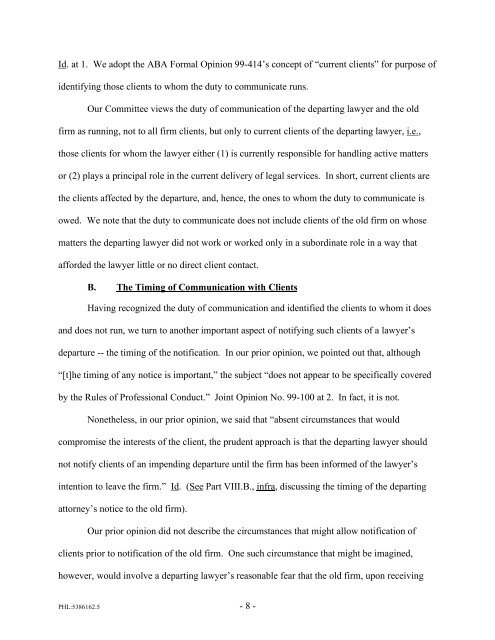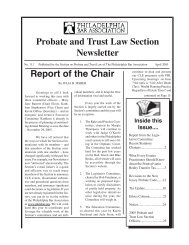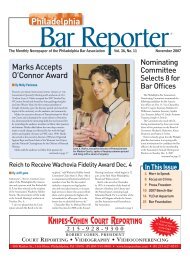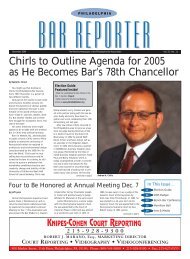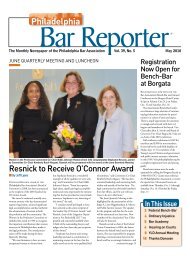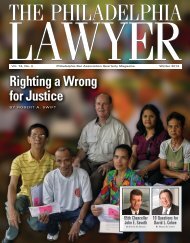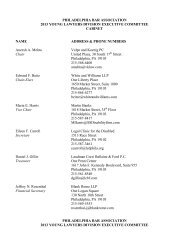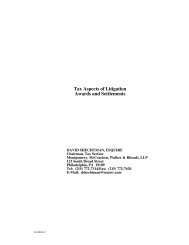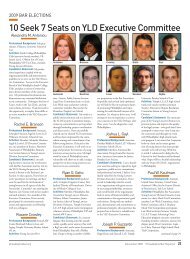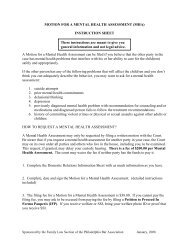here - Philadelphia Bar Association
here - Philadelphia Bar Association
here - Philadelphia Bar Association
You also want an ePaper? Increase the reach of your titles
YUMPU automatically turns print PDFs into web optimized ePapers that Google loves.
Id. at 1. We adopt the ABA Formal Opinion 99-414’s concept of “current clients” for purpose of<br />
identifying those clients to whom the duty to communicate runs.<br />
Our Committee views the duty of communication of the departing lawyer and the old<br />
firm as running, not to all firm clients, but only to current clients of the departing lawyer, i.e.,<br />
those clients for whom the lawyer either (1) is currently responsible for handling active matters<br />
or (2) plays a principal role in the current delivery of legal services. In short, current clients are<br />
the clients affected by the departure, and, hence, the ones to whom the duty to communicate is<br />
owed. We note that the duty to communicate does not include clients of the old firm on whose<br />
matters the departing lawyer did not work or worked only in a subordinate role in a way that<br />
afforded the lawyer little or no direct client contact.<br />
B. The Timing of Communication with Clients<br />
Having recognized the duty of communication and identified the clients to whom it does<br />
and does not run, we turn to another important aspect of notifying such clients of a lawyer’s<br />
departure -- the timing of the notification. In our prior opinion, we pointed out that, although<br />
“[t]he timing of any notice is important,” the subject “does not appear to be specifically covered<br />
by the Rules of Professional Conduct.” Joint Opinion No. 99-100 at 2. In fact, it is not.<br />
Nonetheless, in our prior opinion, we said that “absent circumstances that would<br />
compromise the interests of the client, the prudent approach is that the departing lawyer should<br />
not notify clients of an impending departure until the firm has been informed of the lawyer’s<br />
intention to leave the firm.” Id. (See Part VIII.B., infra, discussing the timing of the departing<br />
attorney’s notice to the old firm).<br />
Our prior opinion did not describe the circumstances that might allow notification of<br />
clients prior to notification of the old firm. One such circumstance that might be imagined,<br />
however, would involve a departing lawyer’s reasonable fear that the old firm, upon receiving<br />
PHL:5386162.5 - 8 -


